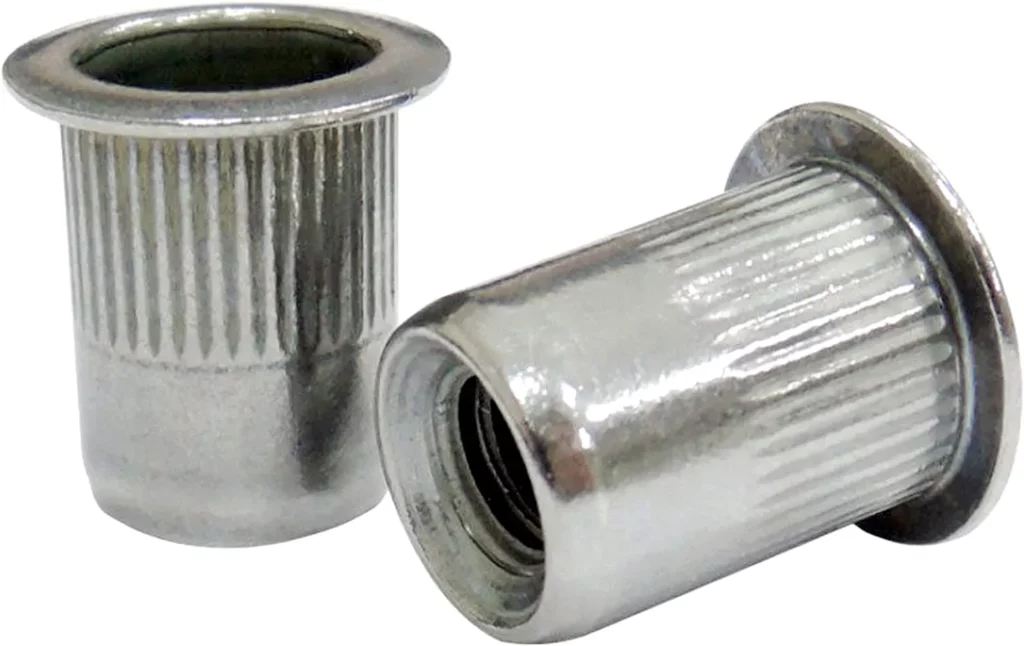Hex rivet nuts, often known as hexagonal rivet nuts, are versatile fasteners that provide strong and secure connections in a myriad of applications. They are widely recognized for their unique hexagonal shape which augments the surface contact area, resulting in higher torque and better resistance to rotation. This article delves into the world of hex rivet nuts, highlighting their features, installation process, benefits, and typical applications.

Introduction to Hex Rivet Nuts
Hex rivet nuts are specialized types of fasteners that provide robust and durable threaded holes in materials that may be too thin or delicate to sustain a traditional tapped hole. As the name implies, these nuts have a hexagonal shape that sets them apart from conventional nuts. The hexagonal configuration is not purely aesthetic but serves a crucial function. It enhances the surface contact area between the nut and the material into which it is installed, allowing for increased torque and better resistance to rotation.
Features of Hex Rivet Nuts
Hex rivet nuts are renowned for their superior features, including high tensile strength and excellent load-bearing capability. They are also resistant to vibration, making them a reliable fastening solution in environments where other types of fasteners may fail.
High tensile strength: Hex rivet nuts are made from robust materials that grant them high tensile strength. This means they can withstand significant amounts of tension without breaking or deforming, making them ideal for heavy-duty applications.
Load-bearing capability: Thanks to their design and high tensile strength, hex rivet nuts have a remarkable load-bearing capability. They are capable of supporting heavy loads, which makes them a preferred choice for industries that require sturdy and reliable fasteners.
Vibration resistance: One of the standout features of hex rivet nuts is their resistance to vibration. The unique hexagonal shape provides an enhanced grip and reduces the risk of the nut loosening or falling out due to vibration.
Easy installation: Despite their robustness and advanced features, hex rivet nuts are incredibly easy to install. They do not require sophisticated tools or techniques, making them a practical choice for both professionals and DIY enthusiasts.
Applications of Hex Rivet Nuts
Hex rivet nuts are utilized in a wide range of industries due to their versatile nature. They are commonly used in the automotive, aerospace, electronics, and construction sectors.
Automotive industry: In the automotive industry, hex rivet nuts are used to fasten body panels, secure accessories, and mount control modules. They are also used in the assembly of automotive components where a sturdy and reliable fastener is required.
Aerospace industry: Hex rivet nuts play a crucial role in the assembly and maintenance of aircraft. They are used to fasten interior panels, secure seats, and mount control systems. Their vibration-resistant feature makes them especially suitable for the aerospace industry where stability and safety are paramount.
Electronics industry: In the electronics industry, hex rivet nuts are used to secure printed circuit boards, mount components, and assemble electronic devices. Their small size and reliable fastening make them a preferred choice for electronic applications.
Construction industry: In the construction industry, hex rivet nuts are used to secure roofing, mount equipment, and fasten structural elements. Their high load-bearing capacity and easy installation make them a practical choice for construction projects.
The Installation Process
The installation process for hex rivet nuts is straightforward. It requires a pre-drilled hole in the material and a special rivet nut tool. The nut is inserted into the hole, and the tool is used to pull the threaded part of the nut, causing it to expand and grip the material securely. This simple installation process is one of the reasons why hex rivet nuts are preferred over other types of fasteners.
Benefits of Using Hex Rivet Nuts
Hex rivet nuts offer several benefits over traditional nuts. These include excellent torque, prevention of rotation, versatility, and a simple installation process.
Torque and prevention of rotation: The hexagonal shape of hex rivet nuts provides excellent torque and prevents the nut from rotating. This is particularly useful in applications where vibration is a concern, such as in automotive or aerospace applications.
Versatility: Hex rivet nuts are incredibly versatile. They can be installed in a variety of materials, including metal, plastic, and fiberglass. This makes them a go-to fastening solution for a wide range of industries.
Installation: As previously mentioned, hex rivet nuts have a simple installation process that does not require specialized tools or techniques. This makes them a practical choice for both professional and personal use.
In conclusion, hex rivet nuts are a reliable and versatile fastening solution for a range of applications. Their distinctive features, straightforward installation process, and numerous benefits make them an indispensable tool in many industries. Despite their small size, hex rivet nuts have a significant impact on the efficiency and reliability of various products and structures, underscoring their importance in the fastening world.
